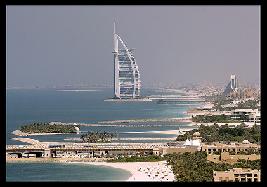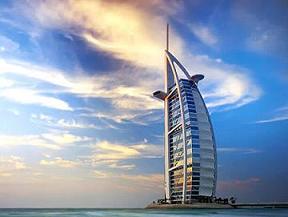Search Powered by Google

The UAE has reached one of the highest voice/data service penetration rates in the world in recent years (Table 1). Mobile telephone service increased from 49% to 91% within four years and to 95% by the third quarter of 2005 (with 3.9 million cellular services subscribers). A 4% grow of fixed landlines per year and the estimated number of Internet users is increasing rapidly.
Important institutional and regulatory changes have taken place and until December 2005, the main telecom operator in UAE is Etisalat, a 60% state-owned monopoly.
.jpg)
Telecommunication Regulation (Stage 3/Stage 4)
Telecommunications services are among the few activities effectively supervised at federal level, by means of the Federal Law by Decree 3/2003 and the Executive Order No. (3) of 2004.
The UAE Telecommunication Regulation Authority (TRA) is the competent body to oversee the telecommunications sector in the State and shall exercise its functions and powers under Federal Law by Decree No.(3) of 2003.
The TRA, together with the new regulatory and policy framework, is designed to facilitate the development of the country’s telecommunication and information technology infrastructure and services, in order to meet national, regional, and international objectives.
The TRA must:
The TRA is required to prepare a national plan on the management of internet networks, to be submitted to the Supreme Committee for approval. Internet service providers require a license (issued by the Supreme Committee) that specifies the conditions and standards for their activities
.jpg)
Policies and regulations set by RTA and approved by the Supreme Committee.
ICT Trade Policy (Stage 3/Stage 4)
The UAE’s generally liberal and increasingly diversified economy and it is very progressive in it's policies towards the adoption of ICT technology. The government always viewed that the advancement in ICT infrastructure will attract foreign investment and to diversify the economy of the country. The UAE has an established ICT policy, including trade policy, in place to help advancing the development and innovation in the country and especially in Dubai. The Formulation and implementation of the UAE trade policy is the direct responsibility of the Ministry of Economy and Planning.
UAE one of the best regulatory environments due to the absence of Corporate Tax and Income Tax, foreign exchange controls, trade barriers and quotas, and the lack of restrictions on capital repatriation provide strong investor incentives and protection.
UAE has joined World Trade Organization (WTO) in 1996 and therefore inherits the overall trading policies and standards set by WTO. Along with these policies, a standardization of trading policies among the Gulf Country Council (GCC) has been added. For example; unifying "custom fee" and other trading laws within the GCC* countries.
The trading law also stipulates minimum UAE national equity of 51% in nationally incorporated companies and 100% for public or private shareholding companies.
Free Zone
One Stop Shop
.jpg)

